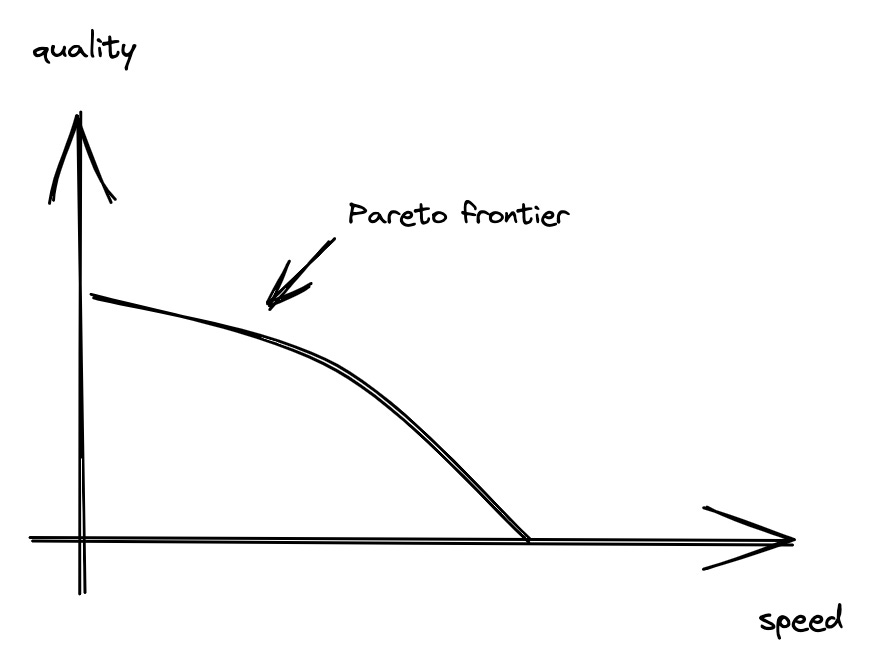Academia vs Business
It’s been almost ten months since I left academia to join Vinted Go. At Vinted Go, I’m leading an awesome team of data professionals on a mission to make our parcel lockers a success.
Many folks have asked if working in business differs a lot from academia. And, honestly, my answer is “not really.”
In both academia and business, my role has been to use data to answer questions. Different data, different questions, but the fundamental task has been the same. (I’m now leading a growing team, too. But that’s a topic for another time.)
Anyway, to me, there’s no fundamental difference between academia and business. The only change is where you land on the speed-quality frontier.
Think of a Pareto frontier of various combinations of (speed, quality):
At best, you can land on some point along this frontier. Here, you will find the best universities and the most cutting-edge tech companies. But there is a catch: If you want better answers to your questions (i.e. higher quality), that will take more time (i.e. lower speed).
Academia and business lie on different parts of this frontier:
In academia, it’s really important to get the answer right, even if that means sacrificing speed. Maybe you work on a single project for months or years, just to go from 95% to 99% confidence. You are at a point of (high quality, low speed).
In business, you also want to get the right answer, obviously. But you place a much higher premium on speed.
That’s a simple mental model, and it does not capture everything. If you are developing a drug with potentially dangerous side effects, you will place an extremely high value on quality. If you are racing to publish a groundbreaking new finding, you will care a lot about speed. But on average the “speed-quality frontier” is not a bad way to think about academia vs business.
A corollary is that the model-data feedback loop is much faster in business:
In business, you are constantly testing your ideas against market data. Millions of ideas have been harshly rejected by an A/B test. In academia, in principle it’s the same — you’re also testing theory against data. In practice, however, success in academia is more like “other researchers like my work.” That slows down the feedback loop considerably.
To wrap up, I think that the “speed-quality frontier” is a helpful mental model for thinking about academia vs business. Both use data to answer questions, with different weights placed on speed and quality.
Same same but different.





